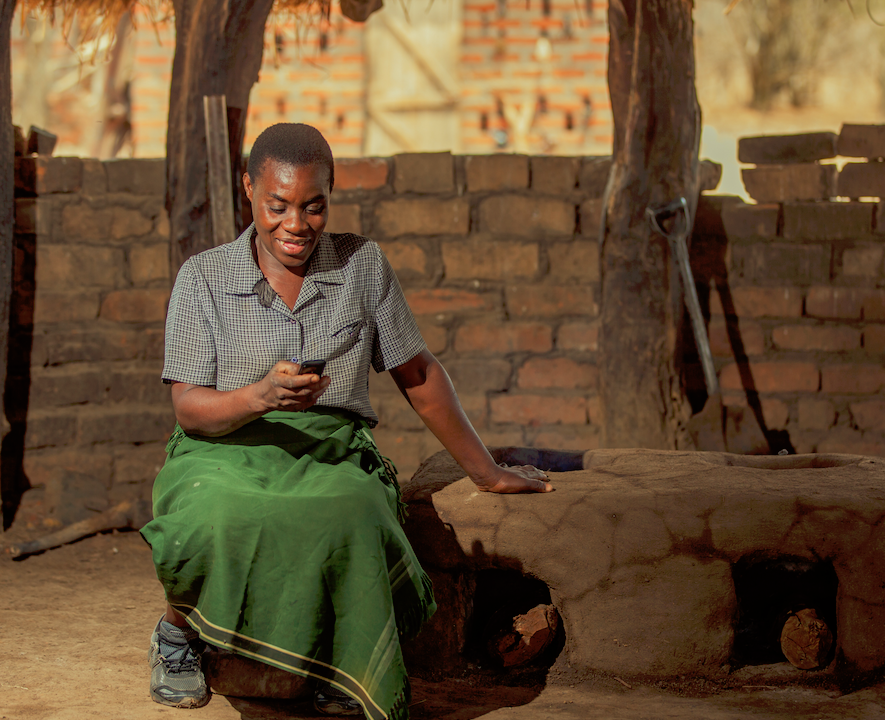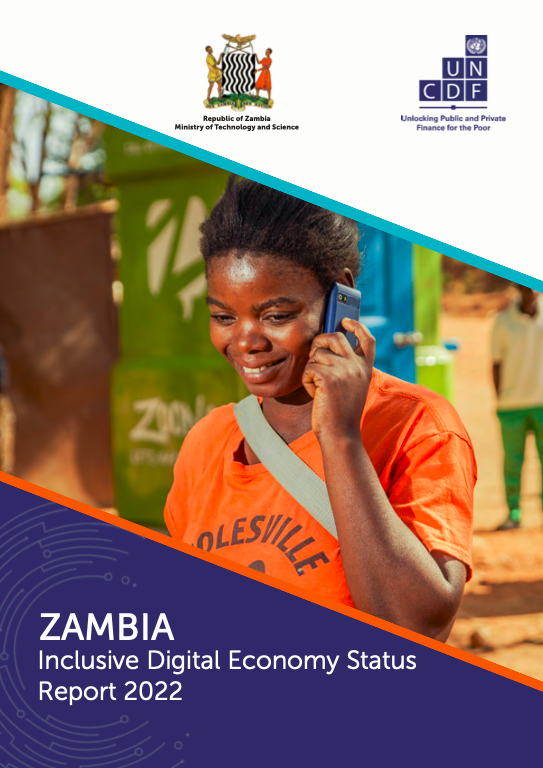Press Release
Zambia's digital transformation will strengthen the economy and create more equitable society
-
April 21, 2022
Summary
On 22 April, 2022 Hon. Felix Mutati, the Minister of Technology and Science, launched the Zambia Inclusive Digital Economy Status Report 2022, which assesses the status of the country’s digital economy and evaluates key constraints to the adoption and increased usage of digital technologies.
This report, produced in partnership with the UN Capital Development Fund (UNCDF), with input from various key stakeholders, is within the new Ministry’s mandate to drive the country’s digital transformation agenda by delivering an actionable digital transformation strategy that encompasses key sectors, opportunity areas, and the participation of all population segments within Zambia’s economy. Digital technology has a role to play in achieving many of the country’s development outcomes, and due to COVID-19 accelerating the use of digital technology, digital transformation must be inclusive and beneficial to all in society.
The Zambia Inclusive Digital Economy Status Report 2022 revealed that a digital economy score of 45 percent, which is still in the start-up phase of a digital economy. Further, the country has a digital divide of 47, meaning 47 percent of Zambians are not digitally-included. The gender digital divide is measured at 34 percent and 56 percent of rural people are not digitally-included. These values indicate the work to be undertaken to bring digital services and products to Zambian people in order for them to better participate in the economy and benefit from national development.
The 2022 Report was developed after extensive consultation with various stakeholders of Zambia’s digital economy. Regulators, private sector players, public institutions assessed Zambia’s digital economy status, key enablers, inhibitors, challenges, opportunities and priorities by utilizing the UNCDF Inclusive Digital Economy Scorecard (IDES) tool. The IDES is a policy tool developed to support countries set priorities for their digital transformation process. By assessing Zambia’s status with regards to digital policy and regulation, digital infrastructure, digital innovation and digital skills, the country can develop a strategy and establish partnerships and initiatives to improve these areas to advance digital inclusion.
Quote from Hon. Felix Mutati, Minister of Technology and Science:
This report is in line with actualizing the Government’s desire for citizen happiness through technology, science and innovation. The Inclusive Digital Economy Status Report gives us information on where we stand as a nation, and with that we are able to set our targets and bring in development and private sector partners who can help us achieve our digital transformation targets.
Quote from Isaac Holly Ogwal, UNCDF Country Lead:
Digital technologies continue to be a key part of Zambia’s development agenda. In recent years, many sector stakeholders have worked to advance the use of digital technology in their daily life, evidenced by the increased adoption and usage of mobile money services where in 2019, 69 percent of adults owned one or more active mobile money account or wallet. Financial inclusion, which is an enabler to digital financial services, increased from 59.3 percent in 2015 to 69.4 percent in 2020.
These data indicate an increased need for digitally enabled products or services across the country, and therefore, the Ministry of Technology and Science’s new mandate is timely. However, whereas noticeable digital advancements are observed in the financial sector through digital finance, significant digital transformation efforts and inclusion of smart technologies needs to be accelerated to other key sectors such as agriculture, health, education, tourism, transport, immigration, amongst others.
Using the Zambia Inclusive Digital Economy Status Report 2022, the Ministry of Technology and Science will develop a new Digital Transformation Strategy, which will be backed by a revised Information Communications Technology (ICT) Policy. These exciting new developments from MoTS will contribute to the Government’s goals of inclusive, progressive national development. With a strategic goal to leave no-one behind in the digital era, UNCDF supports the Ministry’s work in digital transformation.
For further information on UNCDF and the IDES tool, contact Mali Kambandu-Nkhoma, Knowledge Management Analyst (malingose.kambandu@uncdf.org, +260-967800972).
For further information on MoTS, contact 0211 252411.
***
UNCDF Boilerplate
The UN Capital Development Fund makes public and private finance work for the poor in the world’s 46 least developed countries (LDCs).
UNCDF offers “last mile” finance models that unlock public and private resources, especially at the domestic level, to reduce poverty and support local economic development.
UNCDF’s financing models work through three channels: (1) inclusive digital economies, which connects individuals, households, and small businesses with financial eco-systems that catalyze participation in the local economy, and provide tools to climb out of poverty and manage financial lives; (2) local development finance, which capacitates localities through fiscal decentralization, innovative municipal finance, and structured project finance to drive local economic expansion and sustainable development; and (3) investment finance, which provides catalytic financial structuring, de-risking, and capital deployment to drive SDG impact and domestic resource mobilization.

